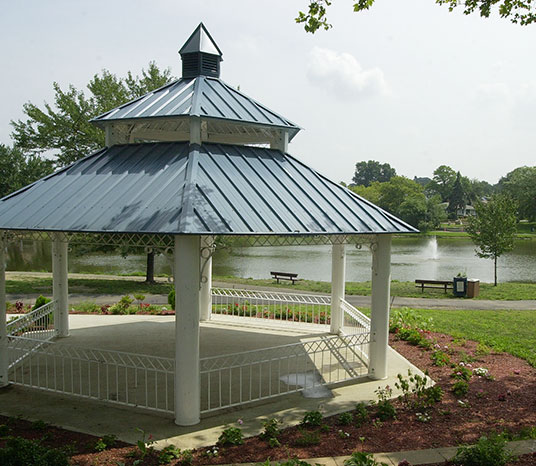By MICHAEL NUNES
Staff Writer
SOUTH RIVER — After public outcry, members of the Planning Board voted to delay a decision to recommend that a section of lower Main Street be labeled as an area in need of redevelopment.
“Please give us the opportunity to understand and digest the plan,” Amin Moawad, who owns a business at 50 Main St., asked the Planning Board at the Jan. 19 meeting.
“I’d like to be on the record to have this plan frozen at this point,” he concluded, also stating that he felt many of his questions surrounding redevelopment had not been answered. His comments were echoed by several other members of the audience.
At the meeting, the board voted to extend a public hearing on the lower Main Street Redevelopment Study in order to give board members, as well as business owners in the area, more time to review the study.
“That was almost a foregone conclusion given the complexity of the report that the board was not going to vote on it tonight. … Speaking for myself, I don’t think the board collectively was going to vote on it tonight,” Mayor John Krenzel said.
“What this is going to do … is offer an opportunity for all of the businesses and property owners to be able to talk about doing something to their properties. What redevelopment does is it opens up incentives,” said Michael Trenga, who is the council liaison to the Planning Board. He also stated that this will be a non-eminent domain redevelopment process that properties owners have to volunteer for in order to take part of.
The study was conducted by Todd Bletcher, of Bignell Planning Consultants Inc., and advocated for deeming the area as an area in need of redevelopment.
“The whole point [of the redevelopment process] is to encourage outside businesses and property owners to come in and invest in the borough,” said Bletcher, who also spoke of what is possible through the process.
“For existing property owners, it can encourage participation involved for priority grants, loans and other financing programs. For new development it allows the borough to prohibit or encourage specific uses involving design requirements and access to grants and financing for special uses,” he said, using the example of the Avenel Arts Village which received grants from the N.J. Department of Environmental Protection, as well as other state commissions.
Business owners, as well as residents in town, were worried about what this process could mean for the borough.
“Why restrict this zone so much? Let’s look at the businesses we do attract — the kinds of businesses that have come here over the years instead of businesses we want to come here but will never,” said resident Janet Chmura.
“I see this as more ordinances, more difficulties to do business,” she said.
Bletcher responded by saying that no plans had been created, and that a plan could put fewer restrictions on businesses.
The study focuses on roughly 160 commercial properties along a section of Main Street stretching from the corner of Gordon Street east towards the War Memorial Bridge as well as from George Street south to Jackson Street. Also included in the study are properties along Ferry Street.
According to Cynthia Urbanik, Planning Board vice president, those who own properties within the study area have already been notified.
According to Bletcher, within the parameters of the survey, in order for a property to be classified as in need of redevelopment it must meet at least one of eight criteria including: deteriorated building or condition, abandoned buildings, if a property is public owned or vacant for 10 years, obsolete layout or design, property being stagnant or lack of proper use, if the property was damaged by natural disasters, if the property has been deemed an urban enterprise zone, and properties that have been deemed consistent with Smart Growth Principals.
All properties qualify under the last criteria and at least one more, said Bletcher.
The final date for the Planning Board to accept the redevelopment study and make a recommendation to the Borough Council will be the board’s next meeting on Feb. 17.
The Planning Board could either accept the study as is, reject the study or accept it with modifications.
According to Bletcher, before a plan is created for the redevelopment zone, the area must first be deemed a redevelopment zone by council. After it is deemed as such, the borough will reach out to the community for input before coming up with the plan.

